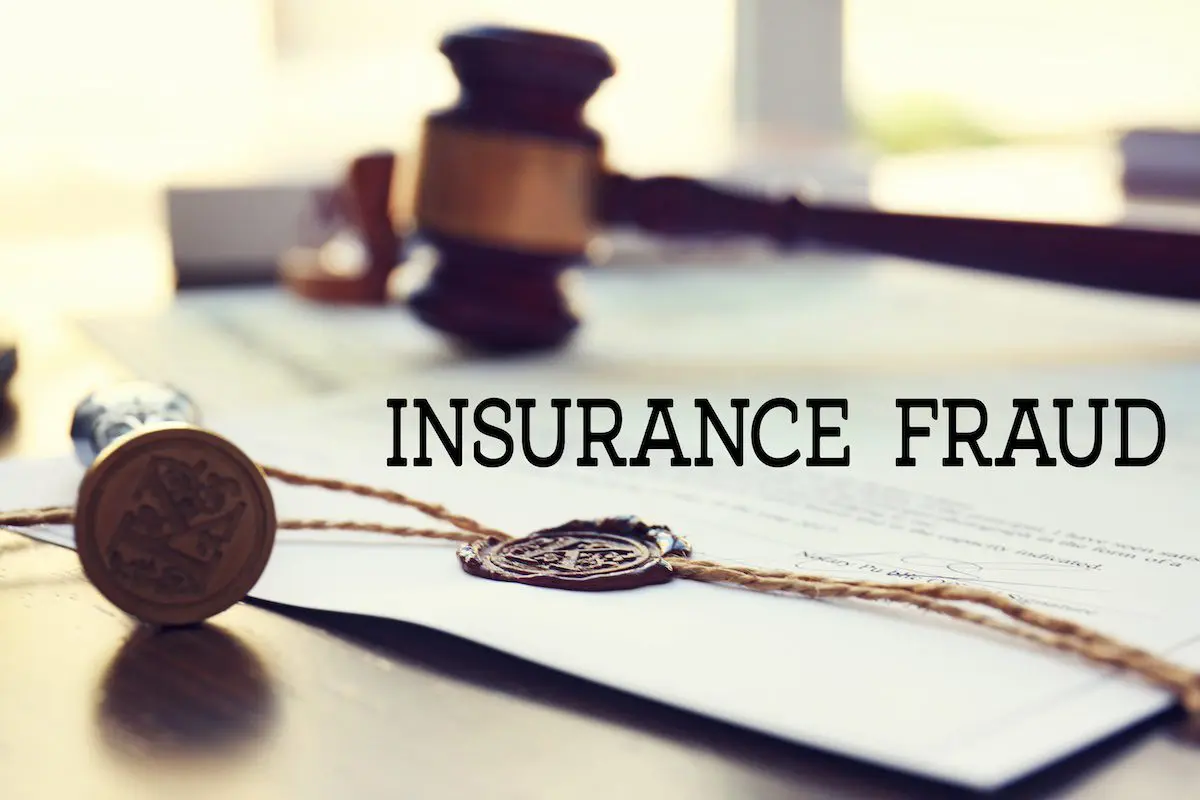Individuals engaging in health insurance fraud typically face criminal charges as it constitutes a felony offense and punishment typically includes fines and jail time in state prison.
Fraud can be committed by professional criminals and organized crime groups as well as medical, legal, and business professionals; however, ordinary citizens may also commit insurance fraud crimes.
1. Penalties
Insurance fraud can result in prison or jail sentences, significant fines and restitution payments as well as permanent criminal records. A fraudulent insurance act includes “presenting, causing to be presented or preparing written statements which include an application for insurance, proof of self-insurance or claim for payment”.
Crimes committed against property insurance are generally prosecuted under state law and can range from misdemeanors to felonies, with the conviction of the latter often leading to 15 years imprisonment. Exaggerating damage claims for home or business insurance policies is one common example. Federal prosecution is rarely sought, though when it does happen it often relies upon federal statutes regarding mail or wire fraud as well as violations that affect interstate commerce.
2. Restitution
Most states allow victims of insurance fraud to seek restitution from those convicted of the crime. Restitution in this form covers both actual and intended losses to victims as a result of criminal behavior.
Insurance fraud occurs among all social classes; however, those working in the insurance industry are most frequently charged with this offense. Insurance adjusters have been found guilty of exaggerating estimates in exchange for kickbacks while agents have been accused of embezzling premium payments from clients. In some instances, perpetrators of fraud may also be held accountable for all costs incurred as a result of investigating and prosecuting their offenses. This may include attorney fees, court costs, and investigative expenses incurred as a result.
3. Damages
Many rely on insurance as a form of financial security against accidents or theft; however, those engaging in fraudulent practices undermine this benefit by lying to receive undeserved money from their policies. Common forms of insurance fraud include making false property claims, staging accidents and injuries, and stealing premiums – these crimes can do irreparable harm to any company in which they occur.
Penalties for insurance fraud crimes depend on both their degree and extent of fraudulent actions, with misdemeanor offenses (of the fifth degree) carrying potential jail time of one year or heavy fines; fourth through first-degree offenses are considered felonies that carry harsher prison terms and higher fines.
4. Confinement
Insurance policies exist to shield people from financial obligations related to property loss or accident; unfortunately, however, some dishonest individuals take advantage of the system by misrepresenting losses to obtain money fraudulently that should have gone elsewhere.
Insurance fraud can result in prison time depending on its degree. Fifth-degree insurance fraud carries up to one year of state prison, while insurance fraud in its second, third, or fourth degrees could incur criminal charges that carry prison terms of four, seven, or fifteen years respectively. Even if you’re found guilty of insurance fraud, you may still be able to argue a lack of knowledge defense if your statements and writings were false. Even without imprisonment being an option, legal proceedings can restrict freedom in other ways that limit social functioning.
5. Confiscation of Property
Insurance fraudsters typically face additional criminal charges. For instance, when engaging in organized thievery, such crimes could be considered Enterprise Corruption crimes; since such claims of value often result in Grand Larceny charges as well.
An individual charged with insurance fraud could receive a felony conviction, making employment or housing harder in the future and straining relationships with family and friends. Courts may also confiscate property associated with fraud as part of in-rem confiscation; during this process, assets are frozen so they cannot be removed or concealed before receiving final judgment.
6. Confinement of Assets
Insurance fraud schemes often involve manipulating property values. Criminals will sometimes stage fires to claim insurance money on damaged properties; insurers view such schemes as serious crimes and prosecute accordingly. Depending upon the scope and nature of a scheme, insurance fraud crimes may constitute either misdemeanors or felonies. Restitution must usually be paid as part of any settlement for insurance fraud cases.
Insurance Fraud in the Fifth Degree is a class A misdemeanor offense that involves providing false or material information to an insurance company. At its most serious, Insurance Fraud in the First Degree constitutes the ultimate form of fraud by providing significant and material false statements or reports to regulatory bodies with the intent of altering government action.
7. Litigation
Insurance fraud can result in federal charges depending on its severity. Such prosecutions commonly fall under 18 U.S.C 1033 and involve providing false statements or reports to government agencies to influence government actions through mail or wire fraud.
Insurance fraud crimes encompass every form of coverage: health, property, automobile, and life. A person might commit property insurance fraud by exaggerating damages caused by fires or making false claims exceeding actual losses; such schemes cost insurance companies billions each year and pass those costs onto policyholders through higher premiums. Fraudsters could also face civil litigation; for instance, knowingly providing fraudulent information could expose him or her to claims for the loss of money and other assets.
